An Israeli company recently unveiled what might be the next generation of image compression technology. Based on the JPEG format, the new JPEGmini is compatible with existing JPEG but capable of reducing the file size of an image by up to 5X without any visible loss of image quality. As reported by Megapixel magazine, the new JPEGmini is compatible with existing JPEG specifications but allows you to preserve your pictures’ original image quality while achieving a considerably higher compression ratio, resulting in approximately 80% smaller file sizes. (Of course you could achieve a similar compression ratio with existing technologies too, but IQ would suffer.) You can try the JPEGmini technology yourself, using your own photos, at this website: http://www.jpegmini.comThe table below summarizes the file size reduction ratios achieved by JPEGmini for various photo resolutions.
For more details and an interview visit Megapixel.co.il.
A dog magnified to 100% – find the differences – the original on the right, JPEGmini on the left (Credit: Iddo Genuth):
Tuesday, August 30, 2011
Monday, August 29, 2011
The Future of The Internet (according to the UK Future Internet Strategy Group)
 A recent report about the "future Internet" by the UK's national innovation agency, Technology Strategy Board, has some illuminating information about the emerging Internet of Things. It suggests that converged services and a brokerage model, amongst other things, will define the future Web. The report is available as a free PDF download, but as it's 59 pages long we'll summarize some key points in this post.
A recent report about the "future Internet" by the UK's national innovation agency, Technology Strategy Board, has some illuminating information about the emerging Internet of Things. It suggests that converged services and a brokerage model, amongst other things, will define the future Web. The report is available as a free PDF download, but as it's 59 pages long we'll summarize some key points in this post.The report defines the future Internet as "an evolving convergent Internet of things and services that is available anywhere, anytime as part of an all-pervasive omnipresent socio-economic fabric, made up of converged services, shared data and an advanced wireless and fixed infrastructure linking people and machines to provide advanced services to business and citizens."
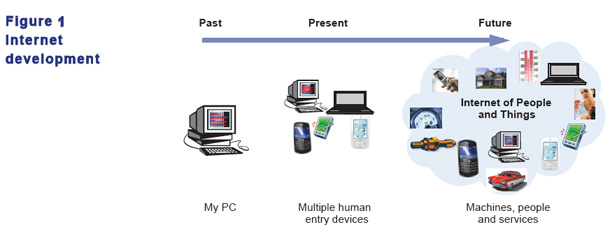
Convergence is a key term used throughout the report, the crux being that data will increasingly come from many sources and that services will need to mix and filter that data.
A big opportunity for entrepreneurs in this future Internet will be to become a service broker:
"A new class of service provider will emerge that will create and market service elements that can be applied across multiple sectors. These elements will be aggregated together in any number of ways by a 'broker', to provide the end user with contextually aware applications and decision support services."The whole report is worth diving into, but the following selection of graphs gives a good summary of the key points.
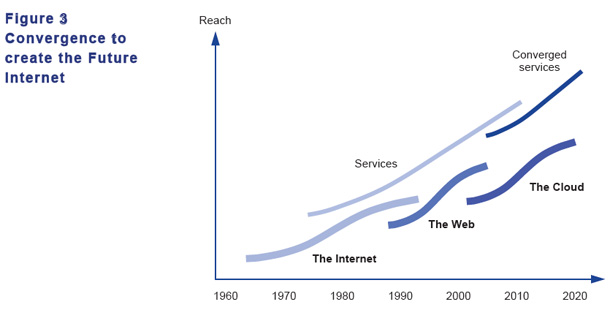
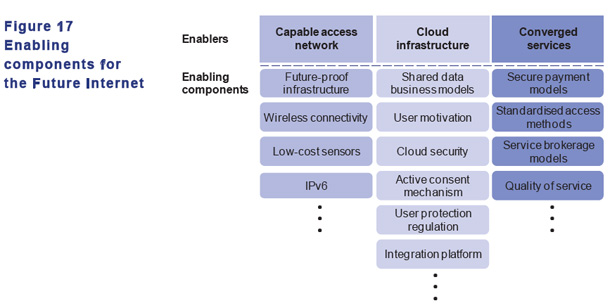
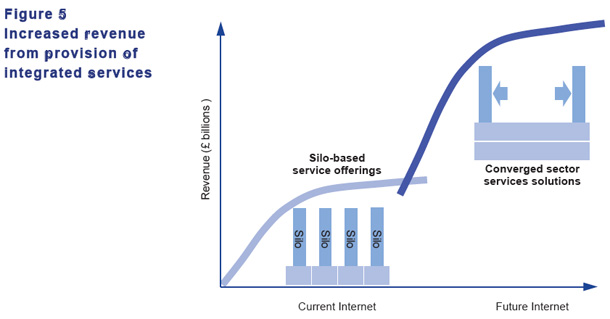
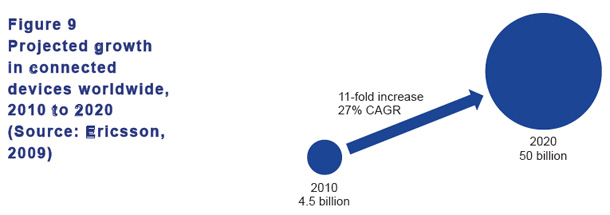

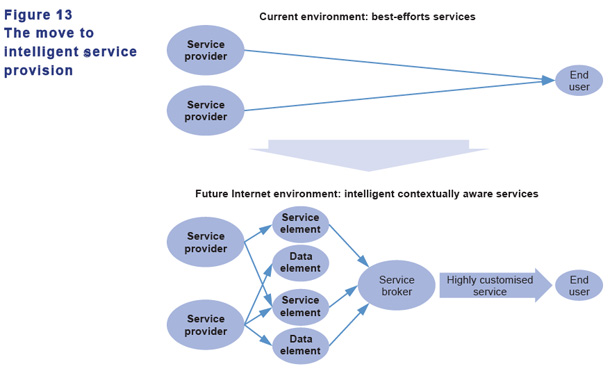
This was seized for you at ReadWriteWeb
Tuesday, August 16, 2011
Android’s Success is Microsoft's Future?
Android is the leading smartphone platform in the world with over 500,000 device activations every day. It is one of Googles most successful businesses helping Google capture mobile search market share and revenues that will top $1.3 billion in 2012.
Microsoft owns several patents relating to Android technology and so Android’s success is quickly becoming a boon for Microsoft, which has established licensing agreements with several Android manufacturers to settle patent infringement claims. After landing several key licensing agreements and with a big Samsung agreement reportedly in the works, Android is well on its way to becoming one of Microsoft’s fastest growing money makers.
Google’s Android OS competes mainly with the Apple iOS, Microsoft’s Windows Phone 7 and Research in Motion’s Blackberry OS in the smartphone operating system market.
Since Microsoft has the rights to several patents related to technology used in Android, it has been able to turn Android into a huge revenue generating business by entering into patent licensing agreements with other companies which produce Android devices.
Microsoft recently entered a patent licensing agreements with several manufacturers including HTC, General Dynamics, Wistron and Onkyo under which they will pay it $5-$10 for every Android device that they ship. With 500,000 devices a day, this implies around $1 billion in value if it received a $5 fee for each Android device. Current negotiations with Samsung, the top Android device manufacturer, could land Microsoft an additional $10-$15 for every Android device activated by Samsung.
All these patent agreements could generate revenues well in excess of $1 billion for Microsoft by the end of 2012.
Currently, Microsoft Office and the Windows operating system are the most valuable segments for Microsoft; however, Android could turn out to be its next billion dollar business and one of its largest revenue generators – surpassing the value of its own Windows 7 platform and perhaps Bing in the not too distant future.
This was seized for you at Trefis





0 comments:
Post a Comment